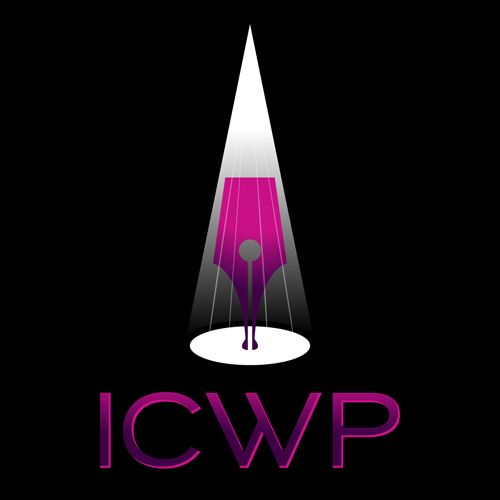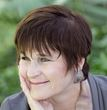2018 50/50 Applause Award

by Patricia L. Morin
ICWP 50/50 Applause Awards Program has initiated changes in the schedule of events this year, beginning with the press releases. Nominations will begin February 15 and last for one month, until March 15th. The reason for this is the ease of checking statistics and communication with theatres during the season we are accepting nominations. March 16th-April 15th, our volunteers will vet and recheck, and confirm all productions from nominated theatres. By the end of May, theatres will verify their info, check all information, and our team will have new press releases ready to roll, requested and collected photos for the video, set up the slideshow and chosen music, ironed out any difficulties, and prepare for the final announcement, articles, and templates for the theatres’ certificates (new this year).
Also new this year, Lauren Gunderson, announced as American Theatre’s most produced playwright in 2017, will be the spokeswoman for the ICWP 50/50 Applause Award, 2017-2018.We are honored that she is a member of the International Centre for Women Playwrights, promotes gender parity in her plays, and congratulates men and theatres that equally support productions by female and male Dramatists. As Co-Chair of the 50/50 Applause Award, I had the pleasure of interviewing Ms. Gunderson.
Member Spotlight: Lauren Gunderson

Pat: Why did you become a playwright?
Lauren: I began as an actor thinking that I wanted to do acting, and looked at theatre from that perspective. But I realized pretty quickly that playwrights get to tell who the hero is, decide why they win or lose, what they’re fighting for—what’s worth telling. I could use that art form (theatre) as an activist, and it was immediate.
Pat: You learned about playwriting through acting.
Lauren: Yes, but I was writing plays when I was fifteen. I’ve been doing this for so many years, and part of the success I’ve had is because I’ve been at it for a really, really long time.
Pat: It is also an inspiration to actors. Some of them want to write plays, but don’t because they think they need an MFA.
Lauren: Yes.
Pat: What was your most rewarding experience as a playwright?
Lauren: It’s always getting the audience to react. In one of my plays, “I AND YOU”, there are several twists. And every time I sit in the back, I hear the audience gasp at the twists. It’s about getting those gasps. And that’s the best thing in the world.
Pat: What do you find the most challenging experience as a playwright?
Lauren: Trying to figure out if I’m the right person to tell this story. There are disappointments: Am I writing the same story over and over again? Then I’m trying to push myself, and think, what haven’t I thought of? It’s a hard thing: If you haven’t thought of it, how are you supposed to recognize what you haven’t thought of? What’s next and what can I expect, an existential problem for any artist.
Pat: You would like to write a story, but wonder if you’re the right person. Say you want to write a story about Ma and Pa Farmer struggling with the loss of their farm. Then you would think, maybe I can do that?
Lauren: Yeah, but why now? I ask myself. We spend a lot of time on that (question). However, if we didn’t have the answer to that in the beginning we probably wouldn’t have an answer by the end. Even now when we think about Feminism, I am a white women living in San Francisco, and I think what are my stories to tell and what aren’t? What stories am I taking from another writer if I try to use them? That’s a hard thing for any artist to say: I’m not the right person to make this art.
Pat: Of the plays you have written, which one is your favorite and why?
Lauren: Impossible to answer.
Pat: Which one resonates with you the most?
Lauren: Early one of mine called Exit Pursued by a Bear. It’s a Shakespearian tale that I turned into a fierce, Southern, contemporary comedy about domestic violence. None of those things seem to fit together. But that play was so liberating to write.
Pat: And symbolically, a bear, and exit, claws, tearing each other apart … could be gruesome.
Lauren: Yeah, but it was this crazy comedy. I think that was the most fun I had writing, the most challenging I had, and the darkest I been able to let my imagination go, and yet, the sword of that play is its comedy. I felt really inspired and excited and continued to go back what was it about that feeling, the theme, the structure, the heart that got me to write that play. That’s kind of me at my best.
Pat: How do your plays represent your values as a person?
Lauren: My plays never stray far from demanding the female perspective. There was one quote, and I don’t remember who quoted it: “When you look at the history of any country, always ask what the women were doing,” because often time no one does, and it continues to be the narrative of what great men are doing, and we know there is more to that story. Part of my soul’s work, the activism at the heart of me, there is power in the empathy that human beings naturally have when they are told a story from another’s perspective, not their own. And that is critical for women, especially now, and has always been. Not only is it important theatre, but makes for great theatre. That’s the selfish part of telling women stories, it’s harder for those characters which makes for better drama. Win win! Often I write about history, science, and women. Female characters have a lot more to prove, to risk, to lose. That's why they deserve their own plays and heroes.
Pat: So that is what is in most of your plays, the women perspective.
Lauren: The women perspective, there is always a transcendent ending. For me, the most false thing about theatre is that it ends. The story ends. Continuance is actual reality. But in theatre, we ask why did we watch this story, what is the point? So every one of my plays has transcendence. It could be very simple or very theatrical … so why not use the tools of theatre to make it that much more impossible, lifted, luminescent, instead of resort to naturalism—shutting the lights off and that’s all we see of those people—that’s the least naturalistic thing you can do. Having them turn into birds and just fly away makes just as much sense. I love using all the tools that theatre allows us, and that our imagination allows us. I love stories about discoveries and human achievement. What I want to do about women, the plays are not only about women, they are for all of us. Hamlet is not a guy’s play, it is a play for all of us.
Pat: How would you advise women playwrights to deal with gender equality in the theatre world today?
Lauren: Most audience, the “let's go and see a play audience” do not know the playwright, or the director, they see the actors in the play. They don’t care. They say, “Is this a story about a lot of dudes? Fine. Is this a play about a lot of women? Cool.” Just because you write a play as a woman, doesn’t mean you’ll be seen as a Feminist.
Pat: They are taking home one thing, and you think they are taking home another.
Lauren: Right. Writing for diversity, writing for parity is actually different. Most of my plays have more characters that are women, than men. We are the generative voices, and we are what the audience takes away. If you care about the activism of theatre, that is critical to remember.
Welcome New Members
 Emile Adams, USA
Emile Adams, USA
As a student in Tulsa, Oklahoma, Emile Adams won awards in the Tulsa City-County Library writing contest over the course of multiple years. In the years she won for playwriting, her one acts were performed as part of the Performing Arts Center's student works shows. She also won awards for original work with the Emerging Playwrights program through the Tulsa Parks Department when her plays were performed in the student festivals held at Hawthorne Park Theatre. In 2012, Emile won the Kennedy Center VSA award for student playwrights. Her play, Handspeak, was performed for over 2000 audience members at the Kennedy Center. In her early twenties, Emile's plays were performed as part of the Oklahoma Fringe Festival, Tulsa's SummerStage festival, and her play, I Wish You Really Liked Me (and other familial impossibilities) was picked up by Heller Theatre and performed as part of their regular season. Emile's plays are filled with interesting characters, layered conflicts, and hilarious and pathos-filled moments. She deals with invisible disabilities, family struggles, and issues of gender, sexuality, and otherness. As a woman who is both queer and bi-polar, Emile addresses these issues with honesty, grit, and humor. She is currently investigating the generation gap that exists in young and seasoned lesbian relationships.
Representative Play Titles
Fever Dream, I Wish You Actually Liked Me (and other familial impossibilities), Entr'Act
Susan Eve Haar, USA
Susan Eve Haar is a lawyer and playwright living in New York City. A member of The Actor’s Studio, Ensemble Studio Theater, The Writers Guild East and H.B. Playwright’s Unit, she explores, among other topics, the intersection of our neural and lived experiences. Her work has been produced at a variety of venues including Primary Stages, The Women’s Project, 13th Street Rep, HERE, Chester Theater, Manhattan Rep, and The Looking Glass Theater and published by Broadway Publishing and Smith and Krauss.
 Domnica Radulescu, an American writer of Romanian origin
Domnica Radulescu, an American writer of Romanian origin
While I was a student at the University of Bucharest at the height of the communist dictatorship in Romania of the early eighties I joined a countercultural theater modeled after the Poor Theater of the Polish director Jerzy Grotowski, which was called The Attic, as it was situated literally in the attic of the headquarters of the Romanian communist youth. That theater, where I spent most of my waking hours after my university classes, sometimes late into the night rehearsing in a Shakespeare play, or where I played my first important and life changing part as Winnie in Beckett’s Happy Days literally saved my life. It saved my soul from the drudgery of the daily indoctrination of the dictatorship, from the oppressive grayness of our daily material and spiritual deprivations. It helped me create a space of hope and luminosity inside me that to this day is inexhaustible. I have never stopped engaging in theater since those days, be it as performer, director, teacher, scholar of theater and, most importantly for my own artistic growth and expression, as playwright. I have never ceased to find a place of solace, resistance, hope and luminosity in the practice and the study of theater, it’s passion, it’s incandescence and it’s uncompromising claiming of the here and now. Every day, the belief in the power of theater, the knowledge that it still exists and that places of live theater like my Attic theater in Romania, still offer refuge to so many from the drudgery of various forms of oppression and a chance of authentic emotion and experience , helps me survive and saves my life.
 Dale Griffiths Stamos, USA
Dale Griffiths Stamos, USA
Hello! My name is Dale Griffiths Stamos and I have been a working playwright for a number of years in Los Angeles, California. I recently transplanted to beautiful Santa Barbara, California, where I get to write looking out at beautiful hills and Eucalyptus trees. My full-length play productions include: One White Crow at Edgemar Center for the Arts in Santa Monica, CA and Arena Repertory Players on Long Island, New York, and Dialectics of the Heart at Edgemar Center for the Arts. My play with music, Blue Jay Singing in the Dead of Night received a workshop production at Pacific Resident Theatre in Los Angeles. Two evenings of my one acts have been produced: Love Struck at the Beverly Hills Playhouse in Beverly Hills, CA, and Thicker Than Water at the Promenade Playhouse in Santa Monica, CA. My 10-minute play, The Unintended Video, for which I won the Heideman Award, was produced originally at Actors Theatre of Louisville, and then worldwide at countless venues since. Many of my other short plays have been produced throughout the country. I have been a two-time top 10 Winner in the Writer's Digest Stage Play Competition and I won the Jewel Box Theatre's Original Playwriting Competition. In the last few years I have expanded into writing and co-producing short films which have appeared at multiple film festivals and have won two Audience Awards.
Playwriting is a tough business, as we all know. But it is the work of both my heart and mind and I can't imagine ever giving it up. I am equally passionate about teaching and working with writers. I lead workshops at the Santa Barbara Writers Conference and at the San Miguel de Allende Writers Conference, and I teach writing classes at Santa Barbara City College. I am pleased to be a new member of ICWP.
Vicki Meagher, USA
Now Playing & Coming Soon
If you have a play or a reading between March 1 – March 31, please email Amy (amydrake1018@aol.com) before February 15 and it will be featured in the NOW PLAYING column of the March newsletter. Any play or reading in April will appear in the COMING SOON column.

THIS FORTNIGHT IS FEMALE February 6-17, 2018
Three plays by and about women, acted by women. Developed and staged by off the WALL in Carnegie, PA, now premiering Feb. 2018 at Urban Stages 259 W 30th St. New York, NY. 10001. Link:http://www.insideoffthewall.com/this-fortnight-is-female-new-york-2018/. Mother Lode, by Virginia Wall Gruenert,Executive Artistic Director. off the WALL productions at Carnegie Stage will be running in rep with two other plays by, about, and acted by women. Also note that ICWP members can use the promotion code artists in order to take advantage of $15tickets(plus $2 processing fee).

Revelation by Shirley Barrie, will be produced in Shifting Spaces, a program of 3 one-act plays by Those Women Productions at Live Oak Theatre, Berkeley CA from March 23 - April 8, 2018 http://www.liveoaktheater.org/
Queen Marie by Shirley Barrie, directed by Rosemary Doyle, will be produced at the Alumnae Theatre in Toronto, April 13 - 28, 2018 as the finale of the theatre's 100th anniversary season. Visit www.alumnaetheatre.com for ticket information.
Annual Meeting: February 21-28
All ICWP members are encouraged to join our online annual meeting, which begins February 19. Just go to the ICWP website and click on Annual Meeting. It will take you to the forums where you can weigh in on various issues in our great organization.

Letter from the Editor
Several members have responded my call for short testimonials about the impact that ICWP has had in their lives. That article will appear in the March newsletter. If you wish to be included, you can respond to this email with a short paragraph about the benefits of being an ICWP member.
Yours for innovative, engaging, and equitable theater.
Mona Curtis
Newsletter Editor
The image used in this newsletter is the work of КириллБогомазов (Lemurkov)from Novokuznetsk, in southwestern Siberia. It was downloaded from Pixabay on January 30, 2018.
![]() at the top of the post
at the top of the post![]() at the top of the post
at the top of the post